The piano hammer man
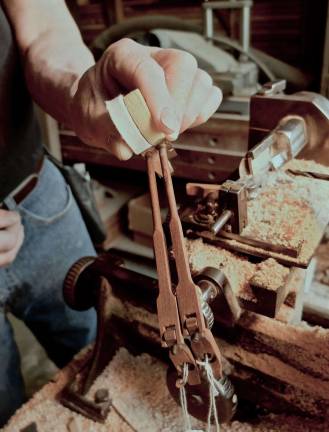
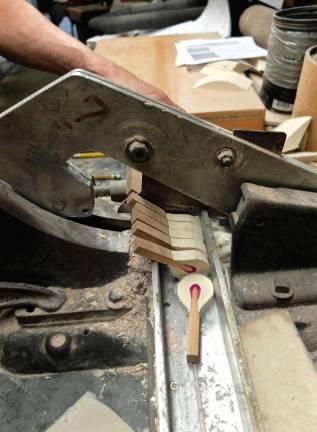
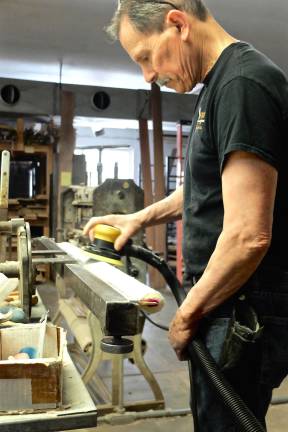
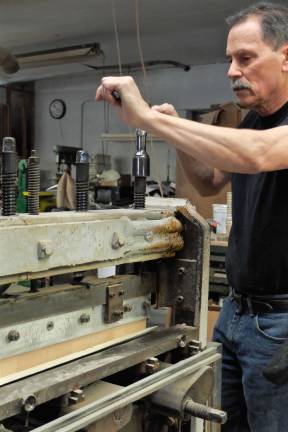
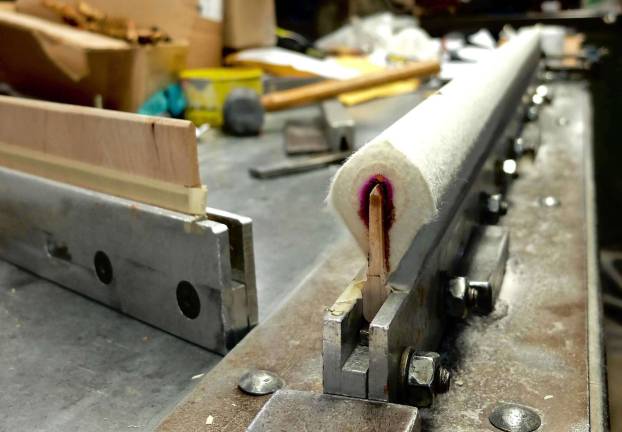
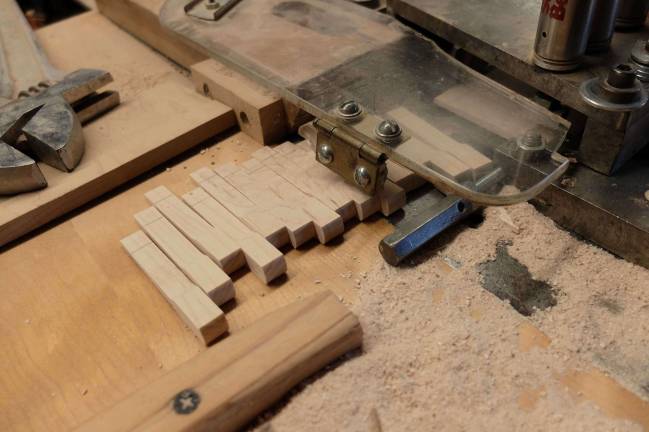
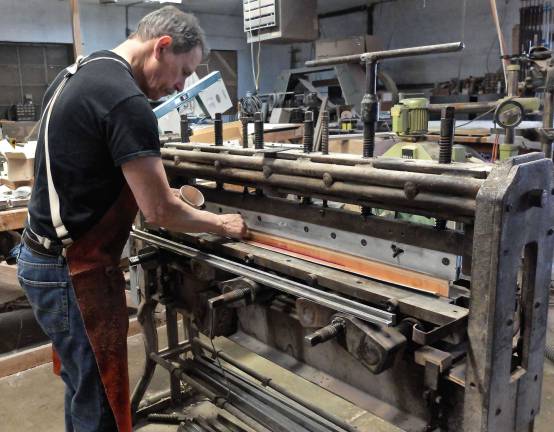
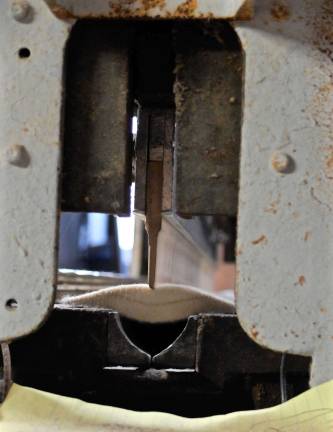
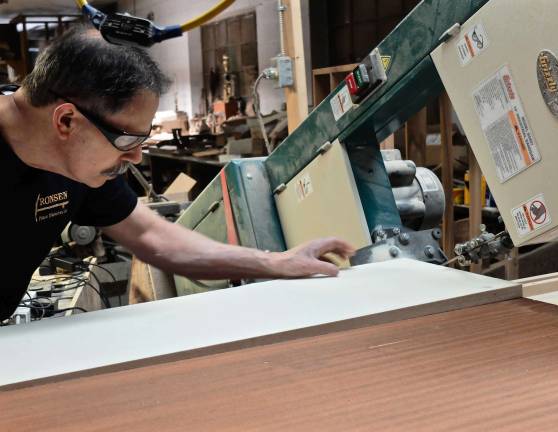
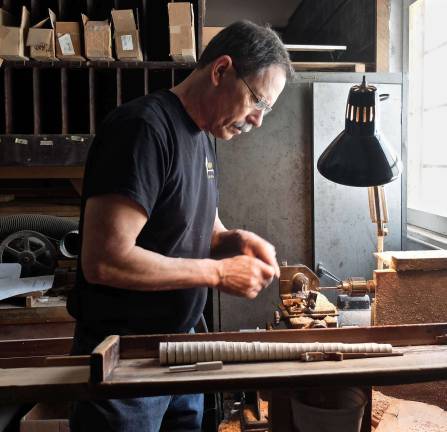
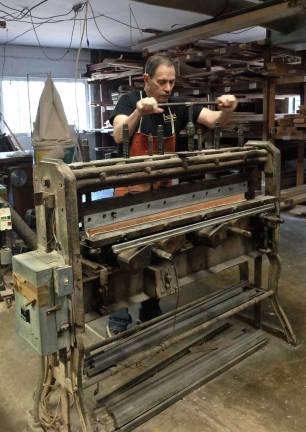
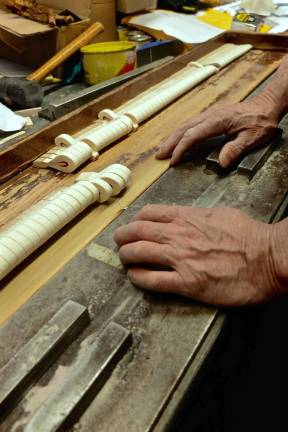
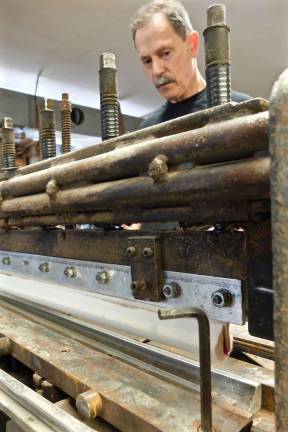
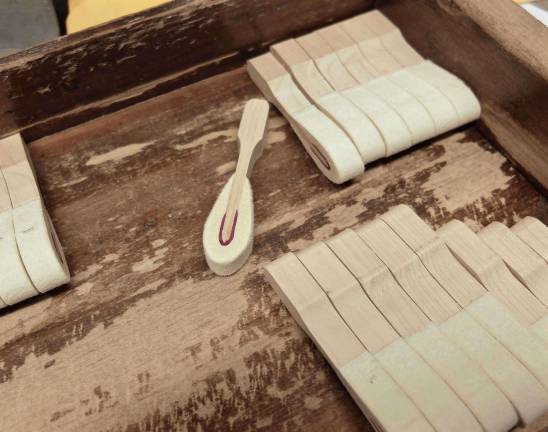
Ray Negron works alone in the Ronsen Piano Hammer Company on the banks of Esopus Creek, surrounded by the Catskill Mountains. The place has flooded twice in the 46 years that the company has hung its shingle here. Ray and the company are survivors.
When he was 14, Ray started working summers at the company his father Mario co-founded in a New York City loft. Ray didn’t plan on still being here 58 years later. He was going to be a baseball player. But he gave it up to go into the family business, and he’s proud of it: “There’s only two places in the United States where hammers are made,” he said. “One is Steinway, and we’re the other one.”
Negron often uses “we” when he talks of the company. A modest, soft-spoken man, he has run the place single-handedly since his father and brother passed. He can make two, sometimes three full sets of hammers in a day. It’s a far cry from the 125 sets that the company turned out, with 23 employees, in its heyday in the 1970s. Still, the Ronsen Piano Hammer Company is doing well. “I’m old but I’m healthy. I don’t want to be busier. I’m happy with the way things are,” said Negron.
From its inception, Ronsen produced piano hammers that were sold directly to American piano manufacturers. In the 1980s these manufacturers couldn’t compete with better quality Japanese imports, and many went out of business. “I had two kids to worry about. Things were kinda rough for a long time,” Negron said. Luckily for the Ronsen Company, piano hammers wear out over time. The felt hardens and they don’t strike properly. Ronsen switched to working with piano technicians, custom making hammers to refurbish pianos. It would take more than a shift in customer to save the company, however. To compete with more technologically advanced competitors in Europe and Asia, they needed to change up their product.
Ray spins the large screws on top of his traditional hand screw presses. He focuses intently as he moves between tasks, working on a couple of different sets of hammers in various stages of production. “The nice thing is that you’re dealing with natural materials,” he said. A set of hammers is comprised of 88 thumb-sized drumsticks of hardwood and felt. They’re weighted just so, to produce a nuanced sustaining note when the player strikes the key, the vibration rippling from hammer to metal piano string to sound board.
“You want it to hit straight on in order to maximize the sound, Ray explains. He uses guide hammers sent in from piano technicians. “The piano is usually in three to four sections, so they send us first and last (hammers) of each section, and that’s how I can figure out the boring––every few hammers in a section, we have to change the angle.”
Negron’s choice of felt plays a large part in the company’s success. He customizes the order based on what size piano he’s making the hammers for, and what sound the piano technician is looking for.
The difference between Negron’s hammers and other hammers is “that we’re looking to get more bounce out of the hammers” when they strike the string, he explained, “as opposed to the hardness of the European and Japanese hammers. Resilience is what it is.”
The traditional manufacturing process that Negron still uses, combined with the use of the highest quality felt, creates a unique hammer that customers worldwide seek out for its ability to create enormous sustain, tone color and power with little maintenance or “voicing” from a technician. “Part of how I got better was listening to my customers telling me what they want, what they were looking for, and figuring out how to achieve that.”
Negron runs a sheet of wool felt through a band saw, slicing it into a triangular strip that replicates the keyboard. The felt, which comes from the Wurzen Felt Company in Germany, is “denser in the treble than it is in the bass, which is necessary because you want a brighter sound in the treble,” Negron said. “It’s technically denser than some hardwoods, even though you can bend it.”
“Now, thanks to the internet we’re shipping all over the world,” said Negron. “The busiest time of year for me is May, June and July. When schools close, and people go away on vacation, that’s when they want their pianos done. So it’s usually seven days a week this time of year.”
Negron is not worried about the demand for piano hammers going away. “It’s too good of an instrument. They’ll always be around.” But the weight of the family business rests on his shoulders. His grown kids have careers of their own. “When we started we used to have kids from school come over, but it’s been years since anyone walked in looking for a job. Our local school dropped their shop class many years ago. I’m going to hire someone and hopefully train them, if I can find someone who’s interested in doing it, and willing to work.” Maybe he can hang in for another decade, until his grandkids are old enough to learn the family trade.